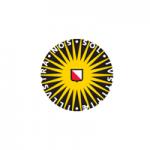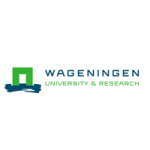项目介绍
The Ethics Institute of Utrecht University’s Department of Philosophy and Religious Studies seeks a researcher for a 3-year, full-time postdoctoral project “Mutual Justification and Disruptive Technology”, as part of the inter-university Gravitation consortium Ethics of Socially Disruptive Technology (ESDiT) external link.
Your job
We are looking for a philosopher with expertise in normative ethics, metaethics, or methodologies of applied ethics who is interested in pursuing independent research and other activities related to the following project, based at Utrecht University, as part of the multi-university research consortium, “Ethics of Socially Disruptive Technologies”.
A key part of what makes the emergence of new technologies particularly disruptive is the moral disorientation and uncertainty that they often produce. Socially disruptive technologies can challenge the applicability of established principles to changed circumstances, the foreseeability of future consequences, and even the viability of key ethical concepts, leading to uncertainty, instability, and ambiguity about ethical judgments and intuitions.
Circumstances of moral disorientation pose special difficulties for what is, arguably, a key feature of ethics: the aim of mutually justifying our judgments, policies, and actions to one another. Many leading ethical theories – such as contractualism, Kantian constructivism, or discourse ethics – conceptualise ethical justification in terms of the obligation, roughly speaking, to provide reasons on which agreement can be reached. This important focus on mutual justification becomes especially vexed, however, when previously shared intuitions are unsettled and common points of reference disappear. As a result, ethical theories focused on mutual justification face profound challenges when technologies disrupt, for example, our understanding of concepts such as “personhood” or “participant in ethical discourse.” By way of illustration: What justifications do we owe each other when one of us is an AI? How can we appeal to principles of solidarity if everyone’s health prognosis can be predicted precisely? How can we apply the discourse-ethical principle of “the approval of all affected” within the domain of virtual realities?
Ethicists of technology have extensive experience analyzing such situations of uncertainty, indeterminacy, disorientation, and unforeseeable change. Their approaches frequently emphasise contextual, empirical, and engaged perspectives and focus on developing pragmatic procedures for restoring mutually agreed upon basis for social cooperation, with an emphasis on socially responsive policy, stakeholder engagement, and ethics by design. At the same time, these pragmatic, procedural approaches to restoring moral orientation or building consensus regarding contested issues regularly give rise to questions about the extent to which the resulting de facto agreements represent instances of genuine justification.
The central aim of this project is to examine the potential for selected philosophical approaches taken from these two broad traditions to learn from each other, particularly in addressing the following questions, broadly construed: How can we best understand the obligation to mutually justify our responses to socially disruptive technologies and the moral dynamism, moral uncertainty, and moral disorientation associated with them? And, more generally, how can we come up with robust moral justifications if morality is subject to change? The postdoc will pursue independent research that engages these topics in a way that supports the research objectives of the ESDiT consortium. More information about the project can be found on this SurfDrive link external link.
This postdoctoral position will be part of the Ethics of Socially Disruptive Technologies programme external link, a ten-year-long international research programme of seven academic institutions in the Netherlands that started in January 2020. This programme has a combined budget of €27 million and is funded by the Netherlands Organisation for Scientific Research in the Gravitation funding scheme for excellent research, and by matching funds from the participating institutions. The programme has the aim of achieving breakthrough research at the intersection of ethics, philosophy, technology/engineering and social sciences, and to position its consortium at the top of its field internationally. A key objective is to investigate how new technologies challenge moral values and ontological concepts (like “nature”, “human being” and “community”), and how these challenges necessitate a revision of these concepts. The programme includes four research lines, “Nature, Life and Human Intervention”, “The Future of a Free and Fair Society”, “The Human Condition” and “Foundations & Synthesis: Ethics of Technology, Practical Philosophy, and Modern Technology-Driven Societies”.
This position is situated within the research line “Foundations & Synthesis.” You will work under the supervision of Joel Anderson external link and Jeroen Hopster external link, and in collaboration with other researchers from the ESDiT programme. You are expected to play an active role in the project described above and to participate actively in the workshops, public events, courses and other activities of the Ethics of Socially Disruptive Technologies programme in general and the “Foundations & Synthesis” research line in particular. You will also play a pivotal role regarding ESDiT’s objective to strengthen mutually beneficial dialogues between researchers working in ethical theory and those working in ethics of technology. The position is based at the Ethics Institute external link, which is part of the department of Philosophy and Religious Studies of Utrecht University. It provides a stimulating and internationally oriented research environment. This is primarily a research appointment, focused on research publications, although you may be expected to devote up to 10% of worktime to teaching or to other non-research activities related to the ESDiT programme.
Your qualities
- You have completed, prior to appointment, a PhD in philosophy, with demonstrated expertise in normative ethics, metaethics, or methodologies of applied ethics.
- You have a record (appropriate to career stage) of publications that demonstrates the ability to conduct research which is internationally recognized as contributing to the field.
- You have an affinity for ethical issues related to technology and have an open-minded research disposition, especially regarding established traditions in applied ethics and ethics of technology.
- You have an active interest in interdisciplinary work which connects philosophical analysis to other relevant disciplines and societal challenges.
- You have the ability to work both independently and collaboratively, with good organisational and communication skills.
- You have a willingness and aptitude for teaching in ethics or a related field of philosophy.
- You are proficient in spoken and written English.
Our offer
We offer:
- a job for 12 months. After a positive evaluationthe contract will be extended for another 24 months (3 years in total);
- a working week of 38 hours and a gross monthly salary between € 4,036 and €4,332 in the case of full-time employment (salary scale 10.5 – 10.7 under the Collective Labour Agreement for Dutch Universities (CAO NU));
- 8% holiday pay and 8.3% year-end bonus;
- a pension scheme, partially paid parental leave and flexible terms of employment based on the CAO NU.
In addition to a bench fee, a conference travel budget is available for this position.
In addition to the terms of employment external link laid down in the CAO NU, Utrecht University has a number of schemes and facilities of its own for employees. This includes schemes facilitating professional development external link, leave schemes and schemes for sports and cultural activities external link, as well as discounts on software and other IT products. We also offer access to additional employee benefits through our Terms of Employment Options Model. In this way, we encourage our employees to continue to invest in their growth. For more information, please visit Working at Utrecht University external link.
About us
A better future for everyone. This ambition motivates our scientists in executing their leading research and inspiring teaching. At Utrecht University external link, the various disciplines collaborate intensively towards major strategic themes external link. Our focus is on Dynamics of Youth, Institutions for Open Societies, Life Sciences and Pathways to Sustainability. Sharing science, shaping tomorrow external link.
The Faculty of Humanities external link has around 7,000 students and 1,100 staff members. It comprises four knowledge domains: Philosophy and Religious Studies, History and Art History, Media and Culture Studies, and Languages, Literature and Communication. With its research and education in these fields, the Faculty aims to contribute to a better understanding of the Netherlands and Europe in a rapidly changing social and cultural context. The enthusiastic and committed colleagues and the excellent amenities in the historical city centre of Utrecht, where the faculty is located external link, contribute to an inspiring working environment.
More information
For more information, please contact Joel Anderson external link at j.h.anderson@uu.nl or Jeroen Hopster external link at j.k.g.hopster@uu.nl.
Candidates for this vacancy will be recruited by Utrecht University.
Apply now
As Utrecht University, we want to be a home external link for everyone. We value staff with diverse backgrounds, perspectives and identities, including cultural, religious or ethnic background, gender, sexual orientation, disability or age. We strive to create a safe and inclusive environment in which everyone can flourish and contribute.
Your application should include:
- a brief motivation letter discussing what interests you about this position, how your background prepares you to carry out your proposed research plan, and any information about your circumstances relevant to assessing your suitability for the position;
- a curriculum vitae, including a list of your publications. Please include at the end the names and contact details of two referees whom we may contact;
- a one-page research note indicating how you propose to approach the research question posed in this description of the vacancy and in the full project description (no more than 750 words). The research plan will also be evaluated in terms of its potential contribution to ESDiT in general, and the Foundations & Synthesis research line external link in particular;
- a key, relevant publication (max. 20 pages – you may also include selections from larger work).
To apply, please send these materials via the ‘apply now’ button. Please submit item 1 (the cover letter) in the field “Letter of Motivation” and items 2, 3, and 4 (in that order) as a SINGLE PDF in the field “CV including a publication list”. Letters of recommendation, grades, copies of diplomas, etc. do not need to be submitted at this time.
Interviews will be held in June. Starting date: 1 September 2024.
The application deadline is 31 May 2024.
联系方式
电话: +31 (0)30 253 35 50相关项目推荐
KD博士实时收录全球顶尖院校的博士项目,总有一个项目等着你!




